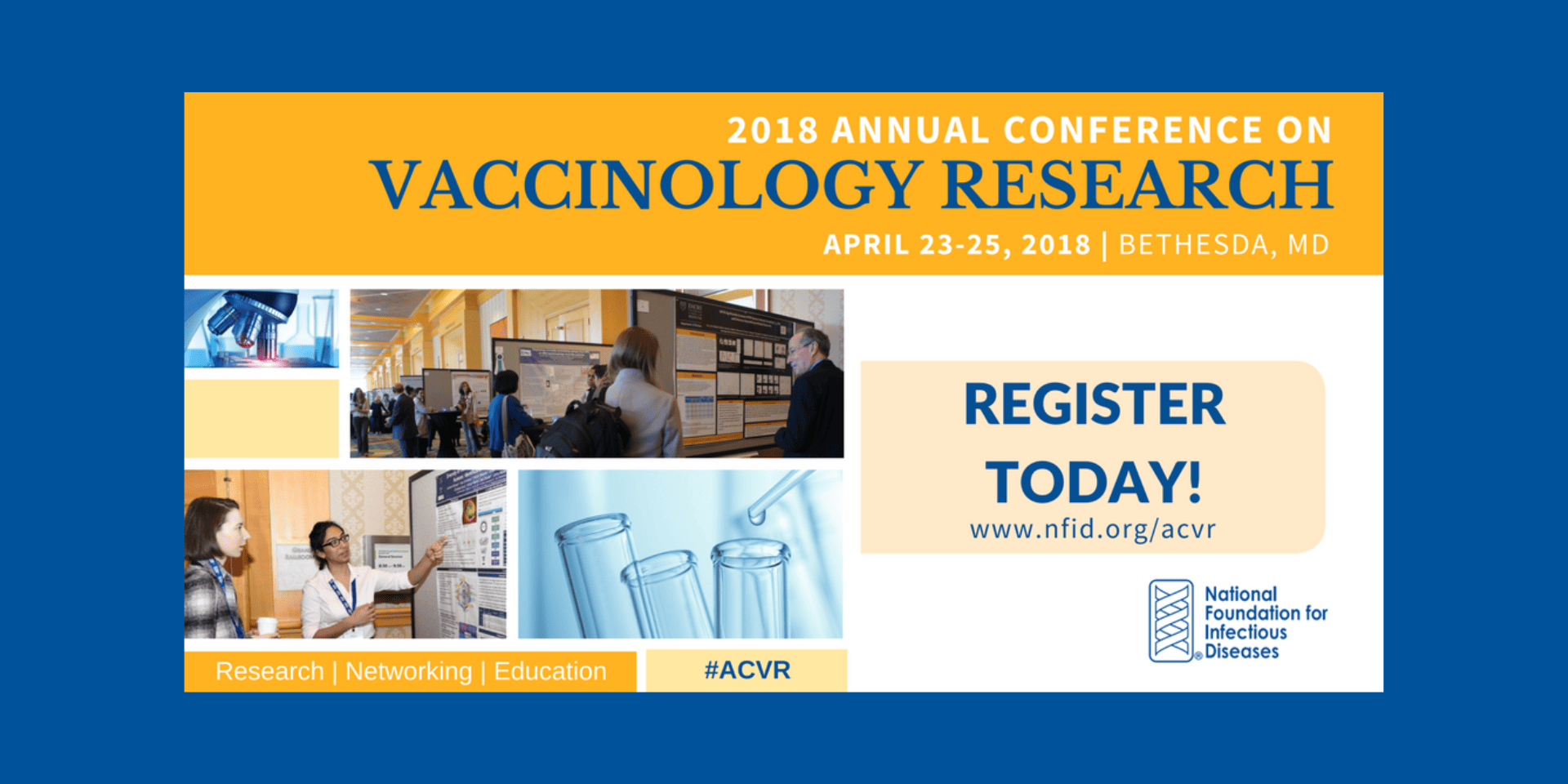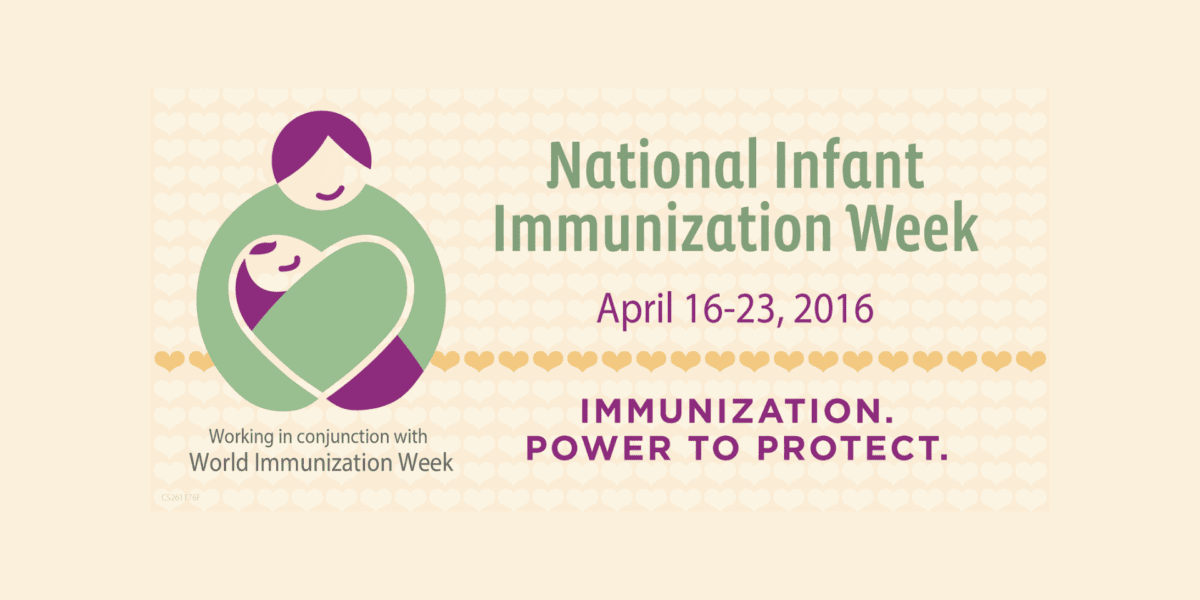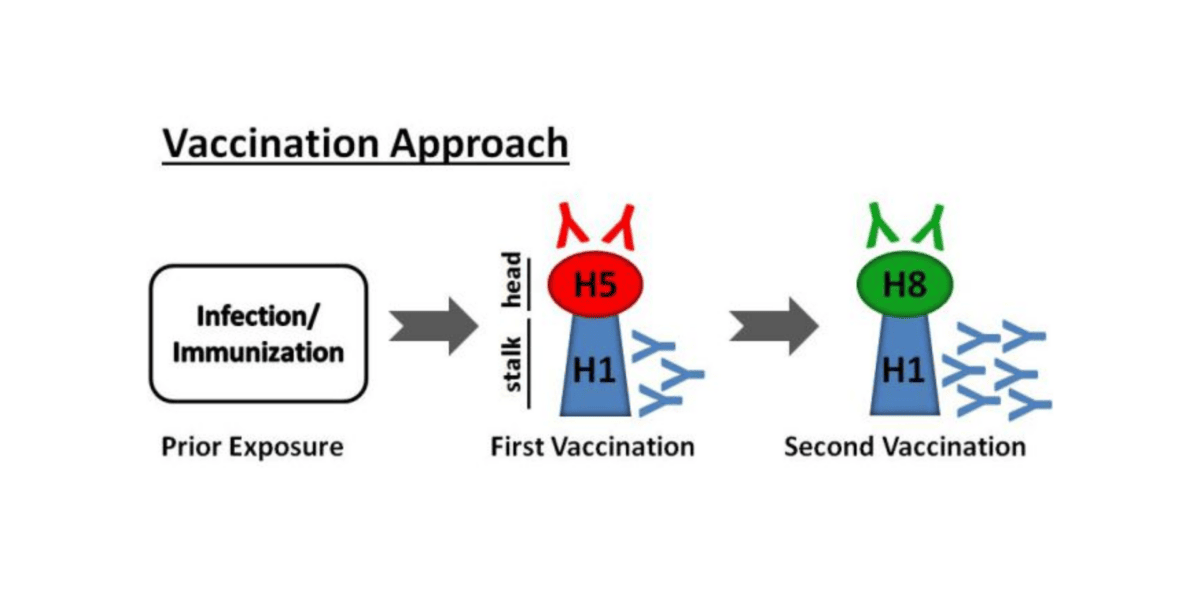
Vaccines protect us from infectious diseases that can be serious, and even deadly. Unfortunately, despite the availability of life-saving vaccines, every year in the US, more than 50,000 adults die from vaccine-preventable diseases. In addition to putting themselves at risk, unvaccinated individuals may unknowingly spread infections to children too young to be immunized or those unable to get vaccinated. Increasing immunization rates not only benefits individuals, but also helps to protect the health of the community, including families, friends, and colleagues.
The field of vaccinology continues to expand and innovate in basic science discovery, product development, market introduction, and adoption into immunization programs. Continual achievements are moving the field forward, with the expectation that many current, challenging diseases—including chronic, non-infectious, and neoplastic—may become vaccine-preventable or vaccine-treatable in the near future.
 On April 23-25, 2018, the National Foundation for Infectious Diseases (NFID) will host the 21st Annual Conference on Vaccinology Research, a forum where leaders pushing the boundaries of what is known and what is possible in disease prevention will address the latest scientific and clinical advances in vaccinology, including effective communication about the importance of timely vaccination.
On April 23-25, 2018, the National Foundation for Infectious Diseases (NFID) will host the 21st Annual Conference on Vaccinology Research, a forum where leaders pushing the boundaries of what is known and what is possible in disease prevention will address the latest scientific and clinical advances in vaccinology, including effective communication about the importance of timely vaccination.
 The conference will bring together the diverse disciplines involved in the research and development of vaccines and associated technologies for disease control through immunization. With an international audience of scientists and researchers, healthcare professionals and trainees, veterinarians, vaccine manufacturers, and public health officials, the conference is designed to encourage the exchange of ideas across a broad range of disciplines.
The conference will bring together the diverse disciplines involved in the research and development of vaccines and associated technologies for disease control through immunization. With an international audience of scientists and researchers, healthcare professionals and trainees, veterinarians, vaccine manufacturers, and public health officials, the conference is designed to encourage the exchange of ideas across a broad range of disciplines.
Highlighted sessions will cover: mumps control with current vaccines and the role of public health communications in mitigating mumps outbreaks in various settings; communicating about vaccines in a post-fact world including research findings on vaccine acceptance, methods and approaches for vaccine confidence surveillance, and behavioral insight-based interventions to increase vaccine compliance; ethical considerations in vaccine trials including best practices and prevailing challenges for the conduct of vaccine trials in low- and middle-income countries, as well as guidance on the fair inclusion of pregnant women in research and development efforts for new vaccines for emerging and re-emerging pathogens; and universal vaccine development to highlight the potential and the progress being made toward universal vaccines for not only influenza but other new viruses that threaten global health.
Watch A Vision for Accelerating Translational Science to Combat Disease featuring an interview with Penny Heaton, MD, CEO of the Bill & Melinda Gates Medical Research Institute, for a preview of the closing keynote presentation.
View the detailed agenda at www.nfid.org/acvr and register online by March 12, 2018 to save $100 on registration fees!
To join the conversation, follow NFID on Twitter using the hashtag #ACVR, like us on Facebook, follow us on Instagram, join the NFID Linkedin Group, and subscribe to NFID Updates.
Related Posts

Developing Improved Vaccines for Older Adults
By 2030, the number of adults age 65 years and older in the United States is expected to grow to 71 million—at least 20 percent of the total population. It is particularly important during this stage of life to maintain healthy lifestyles and habits. Receiving recommended immunizations is an essential part of that process.,,

Celebrating National Infant Immunization Week (NIIW)
The NFID 19th Annual Conference on Vaccine Research (April 18-20, 2016) organizers have developed a track of presentations and posters discussing maternal and infant immunization, in honor of National Infant Immunization Week.

Working Towards a Universal Influenza Vaccine
A universal influenza vaccine would be an exciting new advancement and would revolutionize a vaccination strategy that has remained largely unchanged for over 50 years. An attractive future is on the rise in which an individual would need to receive only two vaccinations over his or her lifetime to protect against the many commonly circulating influenza virus strains, as well as possible emergent pandemic strains.

